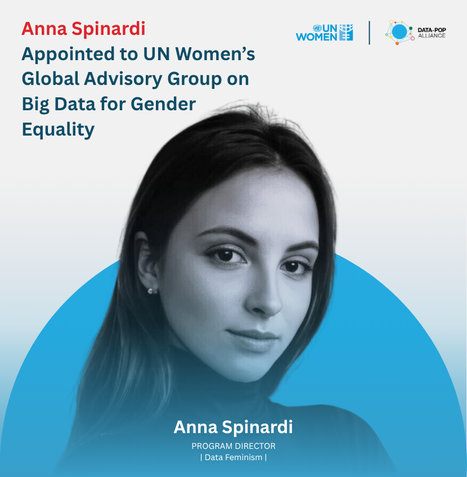LINKS WE LIKE #14
- International Women’s Day: Why We Need to Connect Data and Advocacy to Achieve Gender Equality, Alison Holder, Director of Equal Measures 2030, Silvia Montoya, Director of the UNESCO Institute for Statistics
“What you need to understand as you are doing the ironing is that Wikipedia is no place for a woman.”
An anonymous comment on a user’s talk page, March 2015”
As an assiduous Wikipedia editor, and therefore “public” online-persona, Emily Temple-Wood has been the target of unrelenting abuse for over a decade: “people have been harassing me since the first vandal figured out I was a lady”. Instead of succumbing to what are attempts to silence her, Temple-Wood aimed for more visibility and respect for all women: “for every harassing email, death threat, or request for nude photos that she received, she resolved to create a Wikipedia biography on a notable woman scientist who was previously unknown to the free online encyclopedia”. Read the full story here.
Harassment is a statement of power abuse, disproportionately targeting women and underrepresented groups, in private, public and online spaces. Acknowledging that harassment is pervasive in several online communities - almost three quarters of internet users have witnessed online harassment and 40% have personally experienced it - the Wikimedia Foundation and Jigsaw are looking for technical possibilities to mitigate it. Read more about this research - “Algorithms and insults: Scaling up our understanding of harassment on Wikipedia” - here.
- The troll taunter: a young Wikipedia editor withstood a decade of online abuse. Now she's fighting back - on Wikipedia itself, Andrew McMillen
- Algorithms and insults: scaling up our understanding on harassment on Wikipedia, Dario Taraborelli, Wikimedia Foundation, Ellery Wulczyn, Wikimedia Foundation, Lucas Dixon, Jigsaw, Nithum Thain, Jigsaw
As technology develops and intelligence bots such as Siri, Cortana and Marcus grow popular over the years, it becomes evident that artificial intelligence is dangerously shaped by biases in human thinking. In “Siri, Cortana, Alexa, Marcus. Do bots really need a gender?” (here) Healthinar Engagement, questions why “female bots typically perform more administrative and secretarial roles such as assisting in the completion of routine tasks, scheduling meetings and customer service (...) and male bots on the other hand, often perform more analytical roles like providing financial advice and paralegal services”. By absorbing human stereotypes, the danger is that AI will further foster sexist behavior. Read more on biases into programs, algorithms and designs in “Is AI Sexist?” here.
- Is AI Sexist?, Erika Hayasaki, Foreign Policy
Susan J. Fowler recently revealed the sexist work-environment and permissive HR sexual harassment policies endured during one year at Uber, (re) bringing to light the discussion on harassment in the male-dominated tech industry. Her blog post (here) provides dreadful insights on a toxic culture mixing deeply anchored discrimination, cynicism and partiality. The New York Times relayed the case as a potential “watershed for women in tech” (here), emphasizing the need for “deep, long-term and through effort to remake a culture that has long sidelined women - not just at Uber but across the tech business too”. In response to the New York Times’ article, Debbie Madden, CEO at Stride, wrote a blogpost (here) demystifying good anti-sexual harassment policies, drawing on her 20+ years of experience in the tech industry. Madden argues that not only companies in the tech industry have gotten harassment against women in the workplace right, but that it shouldn’t take years for companies such as Uber to put appropriate policies in place.
- Uber Case Could Be a Watershed for Women in Tech, Farhad Manjoo, New York Times


![M002 - Feature Blog Post [WEB]](https://datapopalliance.org/wp-content/uploads/2025/10/M002-Feature-Blog-Post-WEB.png)






